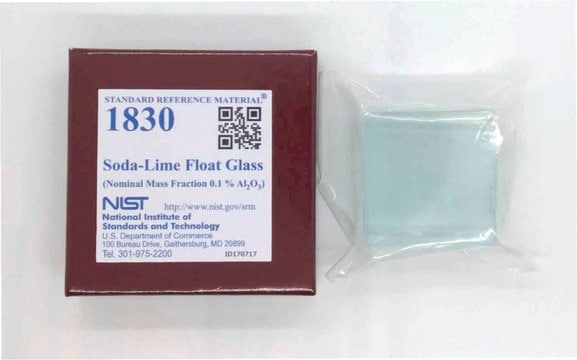GF19149756
Tungsten
wire reel, 100m, diameter 0.01mm, hard, 99.95%
Sinónimos:
Tungsten, W 005115, W
Iniciar sesiónpara Ver la Fijación de precios por contrato y de la organización
About This Item
Fórmula empírica (notación de Hill):
W
Número de CAS:
Peso molecular:
183.84
MDL number:
UNSPSC Code:
12141747
PubChem Substance ID:
NACRES:
NA.23
Productos recomendados
assay
99.95%
form
wire
manufacturer/tradename
Goodfellow 191-497-56
resistivity
4.9 μΩ-cm, 20°C
L × diam.
100 m × 0.01 mm
bp
5660 °C (lit.)
mp
3410 °C (lit.)
density
19.3 g/mL at 25 °C (lit.)
SMILES string
[W]
InChI
1S/W
InChI key
WFKWXMTUELFFGS-UHFFFAOYSA-N
General description
For updated SDS information please visit www.goodfellow.com.
Legal Information
Product of Goodfellow
Elija entre una de las versiones más recientes:
Certificados de análisis (COA)
Lot/Batch Number
Lo sentimos, en este momento no disponemos de COAs para este producto en línea.
Si necesita más asistencia, póngase en contacto con Atención al cliente
¿Ya tiene este producto?
Encuentre la documentación para los productos que ha comprado recientemente en la Biblioteca de documentos.
Mehran Ahmadlou et al.
Nature communications, 6, 6773-6773 (2015-04-04)
The superior colliculus is a layered structure important for body- and gaze-orienting responses. Its superficial layer is, next to the lateral geniculate nucleus, the second major target of retinal ganglion axons and is retinotopically organized. Here we show that in
Synthetic analogues and reaction systems relevant to the molybdenum and tungsten oxotransferases.
John H Enemark et al.
Chemical reviews, 104(2), 1175-1200 (2004-02-12)
Mark L Witten et al.
Chemico-biological interactions, 196(3), 87-88 (2011-12-21)
There is emerging evidence that tungsten has toxic health effects. We summarize the recent tungsten toxicity research in this short review. Tungsten is widely used in many commercial and military applications because it has the second highest melting temperature of
P Thongkumkoon et al.
Toxicology letters, 226(1), 90-97 (2014-02-08)
The toxicity of nanomaterials has been well known, but mechanisms involved have been little known. This study was aimed at looking at direct interaction between nanomaterials and naked DNA for some fundamental understanding. Two different types of nanomaterials, carbon nanotubes
Elias Papaconstantinou et al.
Frontiers in bioscience : a journal and virtual library, 8, s813-s825 (2003-09-06)
Polyoxometalates (POM) have a rich and promising photochemical behavior. Upon illumination at the O M CT band (i.e., in UV and near-visible area) become powerful oxidizing reagents able to oxidize various organic compounds. In the process POM undergo stepwise reduction
Nuestro equipo de científicos tiene experiencia en todas las áreas de investigación: Ciencias de la vida, Ciencia de los materiales, Síntesis química, Cromatografía, Analítica y muchas otras.
Póngase en contacto con el Servicio técnico



